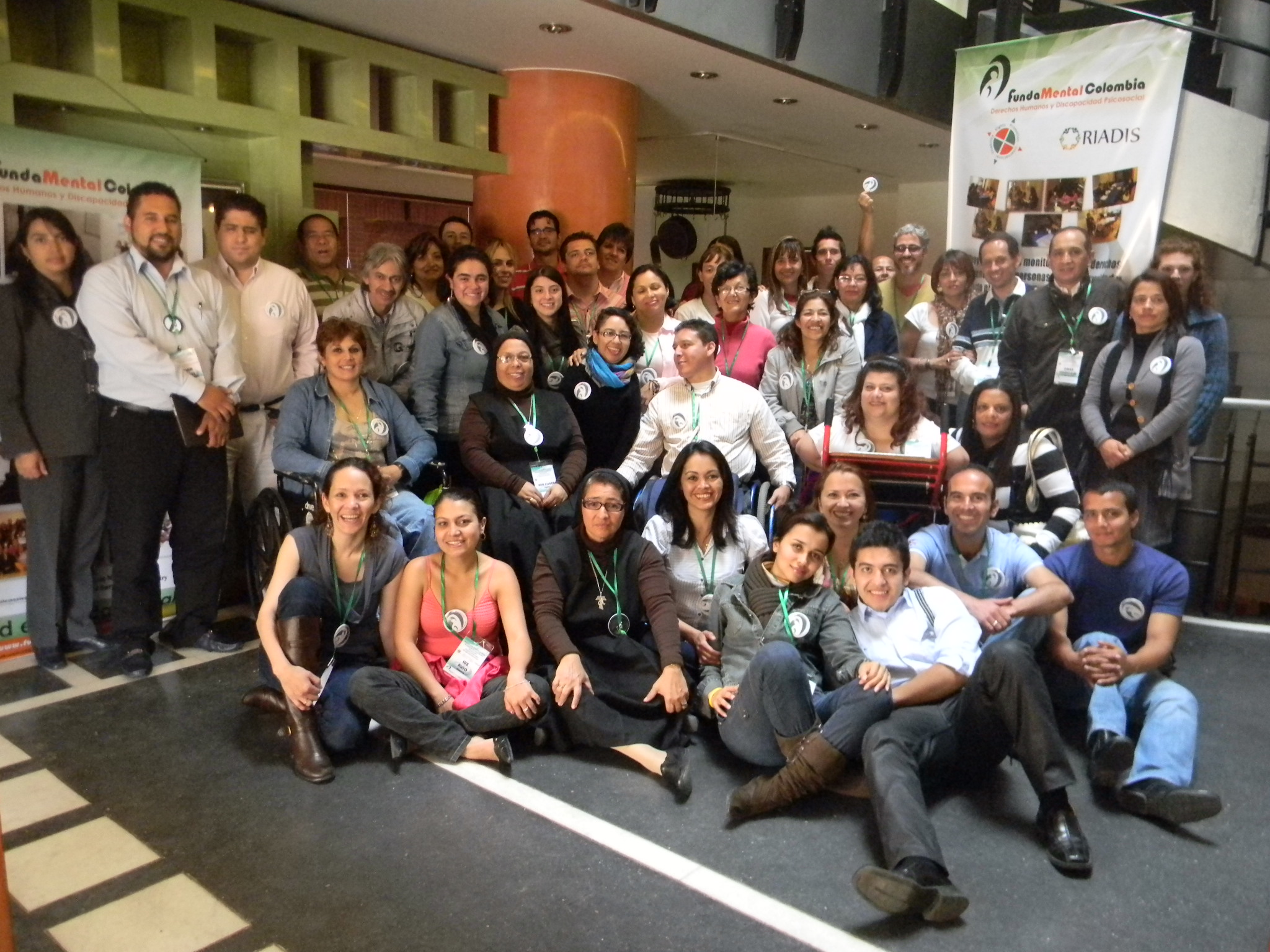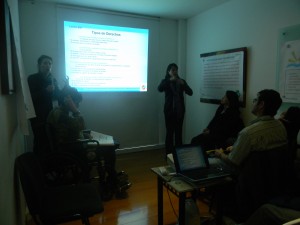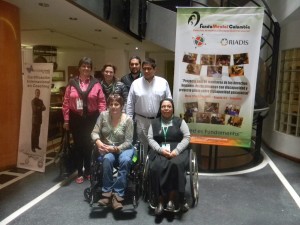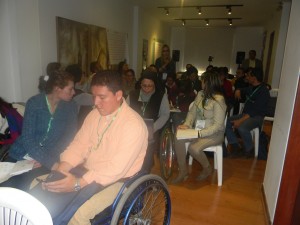You are Here: Home > Latin America Region > DRPI Colombia

Welcome to the “Country Project for the Monitoring of Human Rights of Persons with Disabilities, Pilot Project on Psychosocial Disability”, an initiative led by Fundamental Colombia, with the technical and financial support of: Disability Rights Promotion International (DRPI); York University, Toronto (Canada); and the Swedish International Development Cooperation Agency (SIDA) in association with the Latin American Network of Non-Governmental Organizations of Persons with Disabilities and their Families (RIADIS). The report was launched in September 2014: Monitoring of Human Rights of Persons With Disabilities, with an Emphasis on Psychosocial Disability in Colombia: A Comprehensive Analysis
Training
To implement this initiative, Fundamental Colombia, with the support of the

DRPI Latin America Regional Centre (Buenos Aires, Argentina), organized an open call for participation in this project about the monitoring of human rights, proposed by DRPI and implemented in different countries worldwide (Kenya, Cameroon, India, Bolivia, Philippines, Canada, New Zealand, Argentina, and Honduras). Over 450 people with disabilities from all over the country responded to this call. Among these, there were selected 40 men and women with physical, hearing, visual, cognitive, psychosocial, and multiple disabilities, members of organizations such as: Fundación Ejemplos de Vida, Asociación Afásicos, ARTEBOCA, Asociación Colombiana de Bipolares, Bipolares Eje Cafetero, Asociación Colombiana de Personas con Esquizofrenia (ACPEF), Asociación Colombiana de Conciliadores en Equidad (ACCE), FUNDAAFECTIVOS, Fundación Ángeles de Amor, Coordinadora Nacional de Limitados Visuales (CONALIVI), Centro de Rehabilitación de Adultos Ciegos (CRAC), Liga de Visuales Bogotá, JENADISCOLOMBIA, and Fundamental Colombia. There were also selected some local disability advisers acting as representatives of the people with disabilities from different localities of Bogota, to carry out a theoretical and practical training program in topics related to human rights, United Nations conventions, and the implementation of the monitoring methodology.

The monitor training workshop took place in April, 2013 in Bogota. The participants were empowered and their technical skills were developed, to implement an integral system to follow-up on the human rights of persons with disabilities in Colombia. Once the training was finished, work teams were defined to conduct interviews about individual experiences. Additionally, another group was devoted to the analysis of laws, policies, and programs within the framework of the learned methodology.
Monitoring
In the context of this monitoring project, Colombia was divided into three areas to conduct the individual interviews, as follows: the Central Area, including central cities of the country, Bogotá, Ibague, and some rural areas of Cundinamarca such as La Mesa and Las Mesitas; the Coffee Triangle Area, including cities like Medellin, Pereira, and Armenia; and the Pacific Area, including the city of Quibdó in El Choco.

Module Adaptations
For the DRPI Colombia project, the training tools and monitoring templates were adapted to be accessible for persons with psychosocial disabilities. The DRPI methodology has also been tailored to allow people with all types of disabilities to participate in the monitoring process. The Country Monitoring Project that took place in Colombia, that emphasized the rights of persons with psychosocial disabilities in particular, provides an example of adapting the DRPI methodology to a particular type of disability to ensure its effective and appropriate implementation. Here the content was modified to include specific examples related to psychosocial disability in explaining rights and disability concepts. The manner in which the information was presented–the style of the manual–was also modified: for example, below text paragraphs summaries or figures were included with the most important information. This adaptation allowed participants who found it difficult to engage with long texts to access the main ideas. Illustrations related to the topics were also included to minimize lengthy text passages. Finally, the training sessions themselves – the manner in which the information was delivered – was also altered to take into account the needs of persons with psychosocial disabilities. For example the agenda was divided into shorter blocks of time and observers with experience with psychosocial disabilities were present at the workshops to assist and prevent conflicts. In addition, interviewees were provided with additional instructions on how to address sensitive, emotionally charged and otherwise complex situations that may arise.
DRPI Colombia – People
Partners
- Fundamental Colombia
- Latin American Network of Non-Governmental Organizations of Persons with Disabilities and their Families (RIADIS)
Project Coordinator
- Salam Gómez
Monitors
- Jesús Alberto Galindo
- Yolanda del Rocio Gil
- Luz Janeth Sanchez B
- Max Fabio Rico Contreras
- Emmis Caldas Orizco
- Alvaro Novoa
- Natalia Moreno Rodriguez
- Jaime Alfonso Ramirez Ramos
- Hervin Hernandez Sanchez
- Angela Yizeth Gómez Alfonso
- Cesar Augusto Duran Canal
- Luz Marina Mendez Garcia
- Jenni Rocio Guerrero Ortiz
- Patricia Rodriguez Rojas
- Nelson Ricardo Angel Jauregui
- Claudia Bedoya Montes
- Doris Marisol Gomez
- Alex Mauricio Guevara Lievano
- Miguel Angel Agudelo Gutierrez
- Omar Gabriel Villalobos Luengas
- Alirio Galvis Padilla
- Ingrit Sofía Buitrago Muñoz
- Ximena Serpa
- Martha Isabel Arias
- Esther Varela
- Ivonne Romero
- Leandro Arenas
- Maria Angelica Yazzo
- Madyury Medina
- Francy Yohana Gutiérrez Barrera
- Luis Puche
- Nohora Díaz
- Martha Pardo
- Monica Betancur
- Jhor Alexandra Mejia Garcia
- Sandra Liliana Montoya Sepúlveda